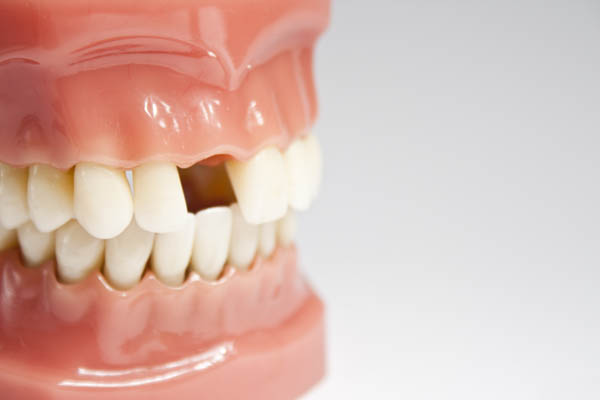Impact of Failing to Replace a Missing Tooth

A missing tooth can affect the aesthetics of your smile, but that is only one of the problems that it can cause. This article will explore a few of the consequences of not replacing missing teeth with appropriate dental prosthetics like dental implants, dentures, or bridges.
Consequences of not replacing missing teeth
A missing tooth can be the result of various things, like severe tooth decay, trauma to a tooth, or periodontal disease. Losing a tooth can be a traumatic experience because it drastically changes one's appearance, which is why some people immediately seek a replacement. However, others opt to keep a gap in their smiles. Consequences of not replacing a missing tooth include the following.
1. Causes bone deterioration in the jaw
The jawbone serves the vital function of anchoring down teeth roots. Teeth also have an essential role: helping to keep the jaw stimulated by transferring bite forces into it. Like muscle tissues, bone tissues need regular stimulation to stay strong and healthy. It causes these tissues to continuously repair damaged cells. A loss of this stimulation leads to atrophy.
Bone tissues in the jawbone are reabsorbed when parts of the jaw stop getting stimulated, leading to changes in the jaw and facial structures. It can diminish the jawline and lead to the chin receding. Reabsorption also increases the risk of the person losing more of their teeth.
Most oral prosthetics for missing teeth like dentures and bridges do not give the jawbone the stimulation that it needs, so replacing teeth with either will not stop the breakdown of bone tissues in the jaw. Dental implants and their hybrids are the only teeth replacement options that prevent bone tissue loss due to missing teeth.
2. Causes poor teeth alignment
Teeth are constantly pushing on each other, so one falling out alters that balance. The remaining teeth usually shift toward the gap created by the missing tooth, to close it up. It is the body’s way of trying to make up for the fact that there is one less tooth in the mouth.
Unfortunately, that can cause teeth misalignment, and it can also lead to issues with the temporomandibular joints, among other problems. Any oral prosthetic that fills the space left by a missing tooth helps keep the remaining teeth in their correct alignment.
3. Increases the risk of infection
Failing to replace a missing tooth increases bacteria activity in the space left behind, increasing the risk of gum disease. Gum disease is the top cause of adults losing their teeth, according to the National Institute of Dental and Craniofacial Research. It is an infection of gum tissues that occurs when bacteria get below the gum line. Having an exposed socket in the mouth makes it easier for these microorganisms to reach that area.
We replace missing teeth
Are you ready to restore your smile? Call or drop by our Chicago clinic to learn more about the importance of replacing missing teeth.
Request an appointment here: https://www.brightsmile-dental.net or call Bright Smile Dental at (773) 733-5876 for an appointment in our Chicago office.
Check out what others are saying about our dental services on Yelp: Missing Tooth in Chicago, IL.
Related Posts
A full mouth reconstruction is a set of dental procedures designed to address multiple oral health and cosmetic concerns. One major component of many full mouth reconstructions is teeth replacement. This review offers insights into why and when dentists recommend dentures as a part of full mouth reconstruction. Dentures offer many advantages that other teeth replacement…
Wisdom tooth extraction is often necessary in order to promote good oral health. The procedure can be daunting to some; however, the result is a healthier oral cavity, thus ensuring better overall health. Because wisdom tooth extraction is an involved procedure, it can be helpful to know what to expect beforehand. This allows for the opportunity…
Oral surgery refers to a wide range of dental procedures, from simple to complex. Some people assume that an oral surgeon performs all dental surgeries. However, this is only sometimes the case. General dentists frequently perform surgical procedures, and this blog takes a closer look at some common surgical procedures general dentists perform.While dentists can…
Implant restoration is a transformative dental procedure that restores function, aesthetics, and confidence by replacing missing teeth with durable, natural-looking implants. While the results are long-lasting, understanding the recovery process and proper aftercare is essential to ensure the success of the implant restoration and maintain optimal oral health.After the placement of an implant restoration, patients…
